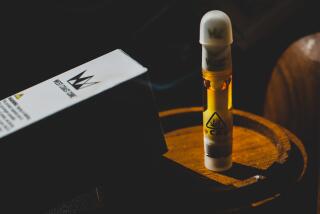Consumer Confidential: Fungicide, Target, CVS
Here’s your three-times-a-lady Thursday roundup of consumer news from around the Web:
-- A little fungicide with your Coke? Coca-Cola says it has alerted the Food and Drug Administration after discovering that Brazilian growers had sprayed their orange trees with a fungicide that is not approved for use in the U.S. Most orange juice products made by Coke and other companies contain a blend of juice from different sources, including Brazil. Atlanta-based Coca-Cola did not say which of its own and others’ products it tested contained the fungicide. Its own orange juice products include Simply Orange and Minute Maid. The FDA has said the low levels found of the fungicide aren’t a safety risk, but they will increase testing to make sure the contamination isn’t a problem. (Associated Press)
-- Target is taking a bite out of Apple stores. The retailer says it will test mini-Apple shops in 25 Target stores. It provided no details. Separately, Target will team up with owners of specialty shops to create affordable, limited-edition merchandise for sale online and at its stores. The company says it will start featuring products from five shops May 6. The shops will be open six weeks and then be replaced with another group of shops in the fall. The initial group includes The Candy Store in San Francisco; The Privet House home accessories shop in Connecticut; The Webster House, a clothing store in Miami; Polka Dog Bakery in Boston; and The Cos Bar, a cosmetic shop in Aspen, Colo. The items will be sold at Target stores and online. (Associated Press)
-- CVS Caremark will pay $5 million to resolve allegations that one of its subsidiaries understated the price of several drugs on a Medicare website. The payment will be used to reimburse Medicare prescription drug beneficiaries who paid more than they expected for the drugs, and it ends an investigation by the Federal Trade Commission. CVS says its Rx America business accidentally published incorrect drug price information on a site maintained by Medicare. In some cases, the actual prices were 10 times higher than the listed prices. The FTC says drugs for which Rx America posted wrong prices included treatments for breast cancer symptoms and epilepsy. The drugs were sold at CVS and Walgreen stores. (Associated Press)
More to Read
Inside the business of entertainment
The Wide Shot brings you news, analysis and insights on everything from streaming wars to production — and what it all means for the future.
You may occasionally receive promotional content from the Los Angeles Times.











